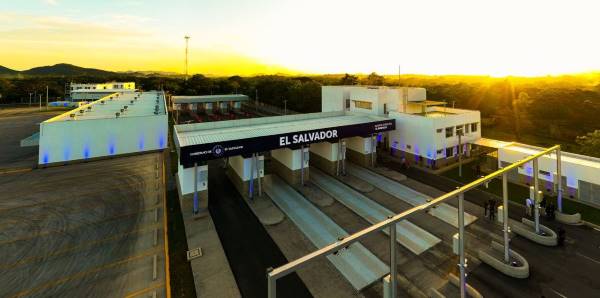Free Movement of Goods in Central America's Northern Triangle for 2025
By Eproint

The Salvadoran Exporters Corporation (Coexport) expressed optimism that the free movement of goods within Central America's Northern Triangle —comprising El Salvador, Honduras, and Guatemala— will commence this year.
According to the Ministry of Economy (Minec), negotiations for the free circulation of products concluded in June, paving the way for a gradual implementation of the measure at border crossings.
Following the conclusion of negotiations, the government has initiated a comprehensive training program for personnel at border posts across the three countries. A pilot test is scheduled to follow this training, ensuring a smooth transition to the new system. Additionally, businesses are undergoing training on the Single Central American Declaration (FYDUCA), a standardized document for the movement of goods. Customs agents are also receiving specialized training to facilitate the efficient processing of goods.
While free movement of goods has not yet been established in the region, Coexport anticipates that the El Amatillo border in La Unión will be the first to implement the new system. This border post holds significance as it represents the first fully integrated border post with Honduras, where customs, immigration, and phytosanitary services from both nations have been working collaboratively since December 2023.
Several products will benefit from the new regime, including plastics, paperboard, hygiene products, and containers for beverages, food, and candy. However, certain items are excluded from this free movement regime. The Secretariat for Central American Economic Integration (SIECA) has published a list of exclusions that encompass livestock-related products, such as cattle, swine, roosters, and hens, as well as tilapia, catfish, dairy products, eggs, and various vegetables and grains like potatoes, onions, beans, jicama, corn, rice, and wheat.
Furthermore, the regime does not apply to aviation gasoline transported by land between countries, nor does it cover diesel, avjet kerosene, turbo fuel, natural gas, propane, and butane.
Guatemala and Honduras are key trading partners for El Salvador, thanks to their geographical proximity and existing trade agreements that eliminate tariffs on various products. The Central Reserve Bank (BCR) reported that in the first half of the year, El Salvador exported goods worth USD 3.2 billion, with 34.5% going to the United States, 19% to Guatemala and 15.1% to Honduras.
El Salvador also leverages land routes to transport goods to neighboring Central American ports, further facilitating trade with countries outside the region.
